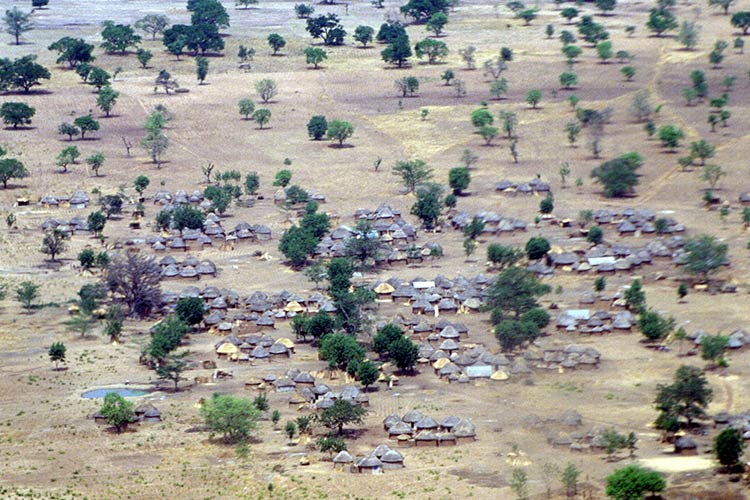REopt Evaluates Centralized and Decentralized Microgrids in Sub-Saharan Africa

Remote power systems in Ghana were provided by United Nations Development Program - Global Environmental Facility in cooperation with Ministry of Mines and Energy and NLR. Photo by Roger Taylor, National Laboratory of the Rockies
NLR used the REopt® model to evaluate the tradeoffs between centralized and decentralized microgrid approaches in sub-Saharan Africa, evaluating options for multi-village microgrids, separate microgrids for each locality, or multiple small systems distributed within communities that serve only homes within very close proximity.
With an electrification rate of only 43%, sub-Saharan Africa is home to a majority of the 1.2 billion people without access to electricity. Moreover, electrification rates are lowest in rural areas, with only 5% of rural households in East African countries having access to electricity. One of the major barriers is the high cost of expanding the grid to reach remote areas. Many studies suggest that off-grid microgrids will be more cost-effective than extending main grid networks for people without access to electricity. However, analysis of voltage measurements for a number of isolated microgrids has shown that significant power quality issues exist in these communities. As microgrid deployment increases, it’s important to consider both system economics as well as power quality during design of these systems.
In this microgrid study, NLR incorporated a fixed-point linear power flow model into REopt to capture the power loss and voltage impacts related to siting of generation. NLR then constrained the solution based on voltage requirements so REopt could provide optimal microgrid solutions while observing voltage limits at all nodes. This model was then used to determine at what distances and cable sizes it was more cost-effective to interconnect different nodes, all while considering the technical constraints of the power system.
Related Stories
NLR technical report: Tariff Considerations for Micro-Grids in Sub-Saharan Africa
NLR/USAID technical report: Productive Use of Energy in African Micro-Grids: Technical and Business Considerations
NLR Data Catalog: Microgrid Load and LCOE Modelling Results
Sponsors
National Laboratory of the RockiesKey Partners
Department of Energy
Power Africa
Contact
Share
Last Updated Dec. 6, 2025
